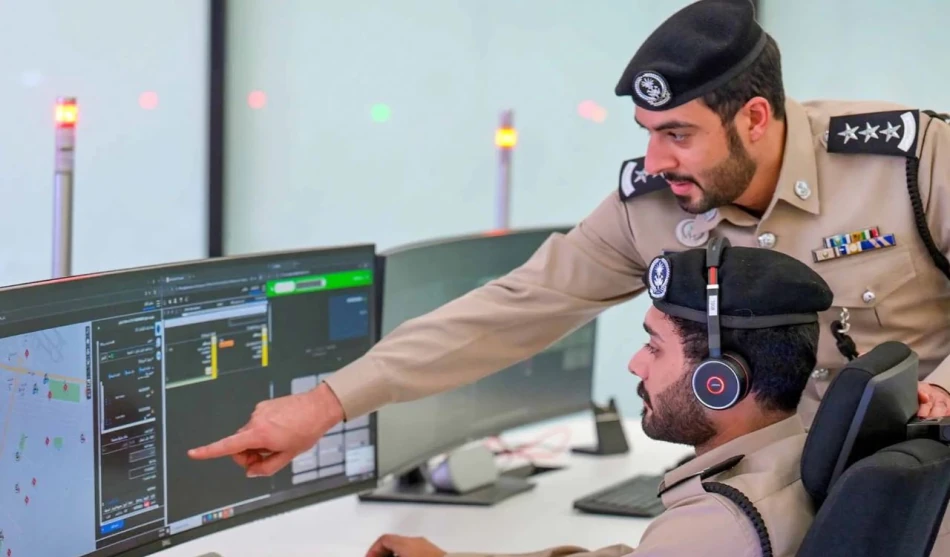
Sharjah Police Swiftly Rescues Two from Vehicle Breakdown in Under 10 Minutes
Electric Vehicle Malfunction Traps Two Passengers in UAE, Highlighting Safety Concerns
Sharjah Police rescued two people trapped inside a malfunctioning electric vehicle in just ten minutes, after the car's complete system failure left passengers unable to open windows or doors. The incident, which occurred on a major bridge route, underscores growing safety questions about electric vehicle design as EV adoption accelerates across the Gulf region.
Rapid Emergency Response Prevents Potential Tragedy
The emergency unfolded when an electric vehicle suffered a complete technical failure while traveling from Al Badi Bridge to Bridge 7 in Sharjah. The malfunction caused the vehicle to stop entirely, with its windows and doors becoming inoperable, effectively trapping two occupants inside.
Sharjah Police's operations center received the distress call and immediately dispatched specialized field teams to the scene. Within ten minutes of the initial report, rescue teams successfully extracted both passengers without injuries while securing the roadway and managing traffic flow.
System Vulnerabilities Exposed
This incident highlights a critical design flaw in some electric vehicles where complete electrical system failure can compromise basic safety features. Unlike traditional vehicles with mechanical door handles and manual window controls, many modern EVs rely entirely on electronic systems for passenger egress.
The malfunction appears similar to issues reported with certain Tesla models and other EVs globally, where passengers have been temporarily trapped due to electronic door handle failures or complete system shutdowns.
Growing EV Adoption Meets Safety Reality
The UAE has positioned itself as a regional leader in electric vehicle adoption, with the government targeting 50% of vehicles to be electric by 2050. Dubai and other emirates have invested heavily in charging infrastructure and offer incentives for EV purchases, making incidents like this particularly significant for policy makers.
The rescue comes as global regulators increasingly scrutinize EV safety protocols. The U.S. National Highway Traffic Safety Administration has investigated similar entrapment risks, while European authorities have mandated mechanical backup systems for critical safety functions.
Regional Implications for EV Rollout
For Gulf states rapidly expanding their EV infrastructure, this incident serves as a reminder that technological advancement must be balanced with fail-safe mechanisms. The region's extreme temperatures make passenger entrapment particularly dangerous, as vehicles can become dangerously hot within minutes.
The swift police response demonstrates the importance of emergency services adapting to new vehicle technologies. Many fire departments globally now train specifically for EV incidents, which can present unique challenges compared to traditional vehicle emergencies.
Industry Response and Future Safeguards
This case will likely influence safety discussions among automakers selling in the UAE market. Most major EV manufacturers have implemented or are developing mechanical backup systems for door operation, recognizing that complete electrical failure, while rare, can create life-threatening situations.
The incident also underscores the value of robust emergency response systems as vehicle technology evolves. Sharjah Police's ten-minute response time sets a benchmark for handling technology-related vehicle emergencies in urban environments.
As electric vehicle adoption continues across the Middle East, incidents like this will shape both manufacturer design decisions and regulatory frameworks, ensuring that the transition to cleaner transportation doesn't compromise passenger safety.
Most Viewed News

 Sara Khaled
Sara Khaled






